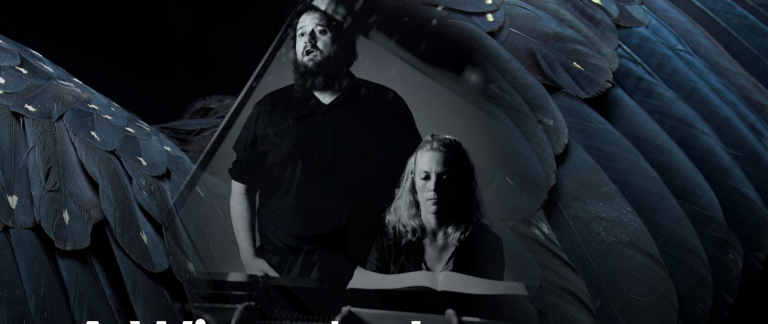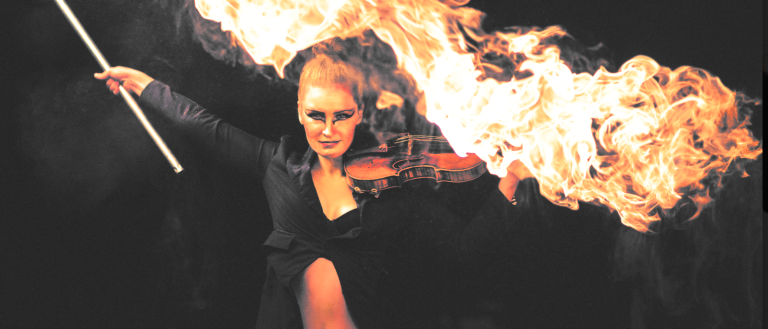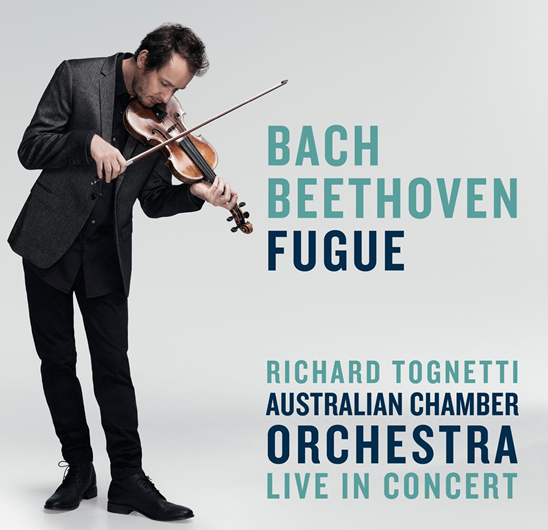Concert Review: Six Times Three/ Sydney Chamber Choir

Six Times Three
Sydney Chamber Choir
Great Hall Sydney University September 6, 2015
In its final concert for 2015, celebrating its 40th year, the Sydney Chamber Choir welcomed its newly appointed Music Director Richard Gill OAM, as conductor, in a (mostly) a capella, numerologically themed program of music by six Antipodean composers – three men and three women, three part – songs each by Debussy and Ravel, three motets and three madrigals. Not surprisingly, the concert was presented under the title Six Times Three.
An intimate group of just 23 singers took to the stage for a skilled and sensitive delivery of a thoughtfully created programme of impressive breadth and depth. The texts spanned six centuries, drawn from poetry and prose, the sacred and the secular; the music was carefully selected for its power to illustrate – characters, emotions, humour, conversations, prayers – and the choir did ample justice to this spectrum of demands, singing with impeccable diction in four different languages – English, Latin, Italian and French. Continuing the theme of the concert’s title, the works had intriguing numerological references.
Performing in reverse chronological order, the programme began with the Antipodean works and moved back through the centuries with the music of Debussy and Ravel, culminating with works by des Prez and Gesualdo.
Opening the concert was Sydney composer Dan Walker’s Elegy Written in a Country Churchyard, which sets Thomas Gray’s eponymous 18th century poem. Born in 1978, Walker was still in his teens when this was written in 1996, winning that year’s Australian Voices Young Composer Award. Whilst the concert programme was built on threes and sixes, in an arithmetic twist, Walker’s Elegy was written for 7 voices in 5 time. It is an appealing yet sophisticated work, especially for one so young at the time of its writing.
The excerpt from Elliot Gyger’s Five Bells presented more play with numbers, written in complex rhythms in six parts for unaccompanied voices with a choral soloist from each voice part. Gyger (b 1968) uses the number five as the basis for this work which sets the verses of Kenneth Slessor in a clever interplay between words and music. Written in 1990, this performance is possibly its only other hearing after it premiered in 1992. The onomatopoeic chiming of bells devised by Gyger was recreated by the ensemble with great effect along with Gyger’s complex rhythms and the anguish of the fading memory of a dead friend.
Vincent Plush’s ( b 1950) The Australian Boy (1984) sets prose, rather than verse, for five voices. The text by Frank Fowler paints entertaining musical portraits of the street urchins of 19th century Sydney and Melbourne. The ensemble delivered a vivid performance of Plush’s music, giving life to the words with Plush’s witty musical devices. Pianist Chris Cartner joined the choir with some very fine playing.
In his pre-concert talk, Richard Gill observed that the three male Australian composers whose music had been programmed probably all used text books written by Dulcie Holland, (1913 – 2000) the doyenne of Australian music. Her beautifully crafted Adam Lay Y-Bounden (1993) is a lush setting, of an anonymous 14th century carol which was exquisitely performed.
Gillian Whitehead (b 1941) was the only New Zealand composer in this otherwise Australian coterie. Performing excerpts from her unaccompanied Missa Brevis (1963) based on complex 16th century polyphony, the ensemble demonstrated its deftness at performing older musical devices infused with a modern perspective.
Closing the bracket of music by contemporary composers were three excerpts from Elena Kats-Chernin’s (b 1957 and not 1941 as printed in the programme) eight piece song cycle, Talk Show (1997). Using text by Hilary Bell, the songs describe the contemporary phenomenon that is the TV talk show. Kats-Chernin excels in many aspects of composition, one of which is expressing the dark side of humanity. The choir was called upon to use their voices percussively with tongue clicks, clapping, heavy breathing, laughs and staccato, illustrating the grotesque call to action as the talk-show begins. The following song, Murder, was accompanied by wood blocks creating an osseous somewhat sepulchral sound, a sombre dialogue in the first and third person, between murderer and victim.
The ensemble’s storytelling of Ravel’s words and music in Trois Chansons (1915) and its companion piece, Debussy’s Trois Chansons de Charles d’Orleans (1908) with choral soloists was enriched with finely nuanced tempi, a spectrum of colours and dynamics and seamless blending and balance. A lightness of style perfectly conveyed the mood of French Impressionism.
Back in time to the Renaissance and three chansons of des Prez from the 16th century (Mille regretz, Cueurs de solez par toute nation and Plaine de dueil) and three early 17th century madrigals by Gesualdo (Ecco, morirò,dunque!, Moro lasso and ‘Io parto’ e non più dissi). Whereas de Prez’s chansons were sung with impeccable control and fluidity, the lines of polyphony rising and falling as each voice part took up the narrative, Gesualdo’s madrigals focussed on emphasising the shock of the unexpected.
There is a great deal to be said for placing the music first in such a carefully curated concert, dispensing with the interval and acceding to Richard Gill’s gracious requested that applause be withheld until after each bracket of items, ensuring the continuity of theme and thought. Too often in a concert I have dreamt of blocking out raucous (albeit appreciative) applause, wishing that I could instead savour the last sublime sounds as they fade in the air before expressions of appreciation.
Comprehensive programme notes and the full text and translations of all the items made for a very enlightening programme booklet and a greatly enhanced appreciation of the music.
This was an astutely compiled programme which entertained and engaged. Another fine performance from the Sydney Chamber Choir directed by Richard Gill.
Shamistha de Soysa for SoundslikeSydney©







